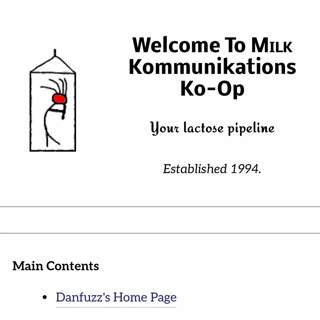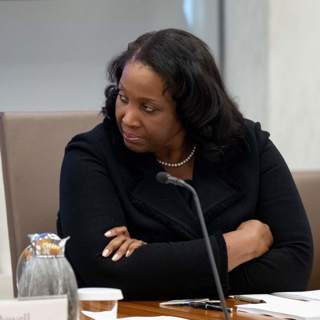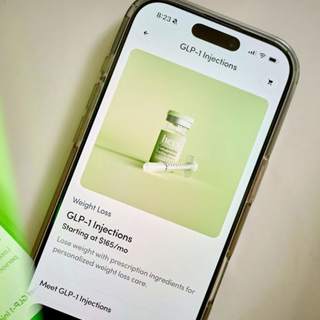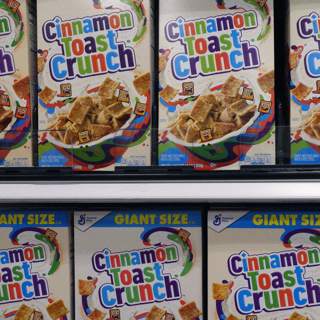
Asking for a friend … which jobs are safe from AI?
There’s one question we seem to be hearing everywhere: “Is my job safe from AI?” Dozens of you, our listeners, have written to us about this. Saying things like, “Maybe my yoga teacher side gig is actually my safest bet now,” and “My parents were in real estate, and I never thought I’d say it ... but maybe that’s what I should do?” If only there were a list that could tell you which jobs are safe from AI. We go looking for that list…and find that the AI future is going to be even weirder than we’d imagined.Today on the show: We talk to two researchers who have come up with some first drafts of the future. We learned more about the machines that might be coming for our jobs, and also, more about what it actually means to be human.Subscribe to Planet Money+Listen free: Apple Podcasts, Spotify, the NPR app or anywhere you get podcasts.Facebook / Instagram / TikTok / Our weekly Newsletter.Today’s episode was produced by Eric Mennel and edited by Marianne McCune. It was fact-checked by Sierra Juarez and engineered by Robert Rodriguez. Alex Goldmark is Planet Money's executive producer. Learn more about sponsor message choices: podcastchoices.com/adchoicesNPR Privacy Policy
10 Sep 28min

What happens to central banks under pressure?
President Donald Trump has been pressuring the Federal Reserve from a few angles. So we wanted to look at other examples of political pressure on central banks, to see what it might mean for us and for the economy. Enter the watchers. The people who’ve had their eyes trained on central banks all over the world, for years, notebooks out, scribbling down their observations. They’ve been trying to gauge just how independent of political pressure central banks actually are – and what happens when a central bank loses that independence. Today on the show, we sidle up next to three of the leading central bank watchers, to watch what they’re watching.Further reading:- Carolina Garriga’s: Revisiting Central Bank Independence in the World: An Extended Dataset- Lev Menand’s: A New Measure of Central Bank Independence- Carola Binder’s: Political Pressure on Central BanksFurther listening:- Lisa Cook and the fight for the Fed- A primer on the Federal Reserve's independence- The case for Fed independence in the Nixon tapes- A Locked Door, A Secret Meeting And The Birth Of The FedSubscribe to Planet Money+Listen free: Apple Podcasts, Spotify, the NPR app or anywhere you get podcasts.Facebook / Instagram / TikTok / Our weekly Newsletter.This episode was produced by Willa Rubin with help from Sam Yellowhorse Kesler. It was edited by Marianne McCune and fact-checked by Sierra Juarez. Engineering by Robert Rodriguez and Maggie Luthar. Alex Goldmark is Planet Money’s executive producer.Learn more about sponsor message choices: podcastchoices.com/adchoicesNPR Privacy Policy
6 Sep 25min

The million dollar mystery behind Milk.com
When we stumbled upon Milk.com, we were mystified. It appears to be someone’s personal website. But memorable domain names can be worth a million dollars or more. So, why is someone using this valuable internet real estate to post their resume and favorite recipes? Back in the internet’s early days, it was easy to get a domain name. They were cheap or even free. The first people to grab them may now be holding onto assets that can sell for millions of dollars. These potential profits have attracted a unique breed of investor who buys and sells domain names, gambling on the value of everyday words. On our latest show: What is a domain really worth? And we ask the owner of milk.com why he’s not selling — and if there’s a price that might change his mind.Planet Money is writing a book! Sign up for updates about pre-sale special gifts and for book tour events.Subscribe to Planet Money+Listen free: Apple Podcasts, Spotify, the NPR app or anywhere you get podcasts.Facebook / Instagram / TikTok / Our weekly Newsletter.This episode was hosted by Alex Mayyasi and Jeff Guo. It was produced by Willa Rubin and edited by Jess Jiang. It was fact-checked by Sierra Juarez and engineered by James Willetts. Alex Goldmark is Planet Money's executive producer.Learn more about sponsor message choices: podcastchoices.com/adchoicesNPR Privacy Policy
3 Sep 20min

Lisa Cook and the fight for the Fed
The Federal Reserve has been under intense pressure from President Donald Trump as he pushes for more control over the historically independent agency. The Fed is tasked with keeping inflation and unemployment under control, and it’s supposed to be insulated from politics so it can do whatever is necessary for the economy. But Trump has been openly saying he wants interest rates to be lower. A lot lower.And on Monday, Trump posted a bombshell. He said that he was removing Federal Reserve governor Lisa Cook, “for cause.” Lisa Cook has told NPR she intends to remain in office, and is now suing Trump. On today’s show: inside the Fed Board of Governors. How realistic is a plan to control monetary policy through loyalists on the Board? We hear from former Board governors to understand what the job is, and what we might be in for. Further listening on the Fed and Fed independence: - A primer on the Federal Reserve's independence - Happy Fed Independence Day - The case for Fed independence in the Nixon tapes - A Locked Door, A Secret Meeting And The Birth Of The Fed - Trump's unprecedented attack on the Fed - Turkey's runaway inflation problem - Should presidents have more of a say in interest rates?Listen free at these links: Apple Podcasts, Spotify, the NPR app or anywhere you get podcasts.Find more Planet Money: Facebook / Instagram / TikTok / Our weekly Newsletter.Help support Planet Money and hear our bonus episodes by subscribing to Planet Money+ in Apple Podcasts or at plus.npr.org/planetmoney.Learn more about sponsor message choices: podcastchoices.com/adchoicesNPR Privacy Policy
29 Aug 22min

Summer School 8: Graduation LIVE!
Get your own personalized summer school diploma here.Today on our final episode of Summer School 2025, we will test your knowledge. We will salute the unsung heroes of government service. And we will pick our valedictorian from among you of the class of 2025. Editorial Note:President Trump attempted to fire Lisa Cook, a Biden appointee to the Federal Reserve Board. Our daily podcast, The Indicator, has coverage on their latest episode. We’ll have an episode in the Planet Money feed soon, in the meantime, here’s some background listening on why this is so important. Years before she joined the Fed, we profiled the work of Lisa Cook. Listen here.Also these: Happy Fed Independence DayA primer on the Federal Reserve's independenceThe case for Fed independence in the Nixon tapesTurkey's runaway inflation problem Arthur Burns: shorthand for Fed failure? Should presidents have more of a say in interest rates?Can the Federal Reserve stay independent? It's hard out there for a Fed chair The series is hosted by Robert Smith and produced by Eric Mennel. Our project manager is Devin Mellor. This episode was edited by Planet Money Executive Producer Alex Goldmark and fact-checked by Emily Crawford.Always free at these links: Apple Podcasts, Spotify, the NPR app or anywhere you get podcasts.Find more Planet Money: Facebook / Instagram / TikTok / Our weekly Newsletter.Help support Planet Money and hear our bonus episodes by subscribing to Planet Money+ in Apple Podcasts or at plus.npr.org/planetmoney.Learn more about sponsor message choices: podcastchoices.com/adchoicesNPR Privacy Policy
27 Aug 30min

Buy discount Ozempic here now click this link
In the past couple years, demand has gone wild for drugs like Ozempic – and its cousins, Zepbound, Wegovy, and Mounjaro. For people who had never been able to lose weight before, suddenly the numbers on the scale were plummeting. And everybody wanted to get their hands on them. Now, in most industries, if a product goes viral like this, it’s a golden ticket. And thanks to government-granted monopolies designed to encourage innovation, the big drug companies behind these blockbuster injections are currently the only ones allowed to make them.In theory, anyway. But, what if that explosive demand backfired, opening the door to legal knock-offs? You’ve maybe seen them - copycats advertised as the same thing as Ozempic. So, what’s the difference? And just how legal are they? On today’s show - a drug that’s changing people's lives is also challenging the traditional way we buy and sell medicine.This episode was hosted by Sydney Lupkin and Jeff Guo. It was produced by James Sneed. It was edited by Marianne McCune, fact-checked by Sierra Juarez, and engineered by Gilly Moon and Debbie Daughtry. Alex Goldmark is Planet Money’s executive producer.Listen free at these links: Apple Podcasts, Spotify, the NPR app or anywhere you get podcasts.Find more Planet Money: Facebook / Instagram / TikTok / Our weekly Newsletter.Help support Planet Money and hear our bonus episodes by subscribing to Planet Money+ in Apple Podcasts or at plus.npr.org/planetmoney.Music: Source Audio - “Subtly Silly Thug,” “Got The Moves,” and “Vive le Punk”Learn more about sponsor message choices: podcastchoices.com/adchoicesNPR Privacy Policy
22 Aug 32min

Summer School 7: Trade blocks and blockages
Tariffs are the favorite tool of our current president, but there are lots of other ways that governments insert themselves into the free exchange of goods and services. Some of these trade barriers are so insidious and have been going on for so long that it may surprise you that they even exist. We bring you the classic story of what happens when you try to protect an American industry and end up hurting another American industry. Well intentioned plans turn into trade barriers that make our lives more expensive. Check out our Summer School video cheat sheet TikTok. Help support Planet Money and hear our bonus episodes by subscribing to Planet Money+ in Apple Podcasts or at plus.npr.org/planetmoney. Always free at these links: Apple Podcasts, Spotify, the NPR app or anywhere you get podcasts. Find more Planet Money: Facebook / Instagram / TikTok / Our weekly Newsletter. The series is hosted by Robert Smith and produced by Eric Mennel. Our project manager is Devin Mellor. This episode was edited by Planet Money Executive Producer Alex Goldmark and fact-checked by Emily Crawford. Learn more about sponsor message choices: podcastchoices.com/adchoicesNPR Privacy Policy
20 Aug 39min

When our inflation infeelings don’t match the CPI
For most Americans, we just lived through the highest period of inflation in our lives. And we are reminded of this every time we go grocery shopping. All over TikTok, tons of people have posted videos of how little they got for… $20. $40. $100. Most upsetting to us: an $8 box of Cinnamon Toast Crunch.Food prices are almost 30% higher than they were five years ago. It’s bad. And those new, higher prices aren’t going away.At the same time, prices are no longer inflating at a wild pace. For the last two years, the rate of inflation has slowed way down. And yet, our fears or feelings that things will spiral out of control again? Those have not slowed down.This mismatch has been giving us all the... feelings. Inflation feelings. Infeelings. On our latest show: we sort through our infeeltions. We talk to the economists who have studied us. We learn why our personal inflation calculators don’t always match the professional ones.Listen free at these links: Apple Podcasts, Spotify, the NPR app or anywhere you get podcasts.Find more Planet Money: Facebook / Instagram / TikTok / Our weekly Newsletter.Support Planet Money, get bonus episodes and sponsor-free listening and now Summer School episodes one week early by subscribing to Planet Money+ in Apple Podcasts or at plus.npr.org/planetmoney.Learn more about sponsor message choices: podcastchoices.com/adchoicesNPR Privacy Policy
15 Aug 31min






















